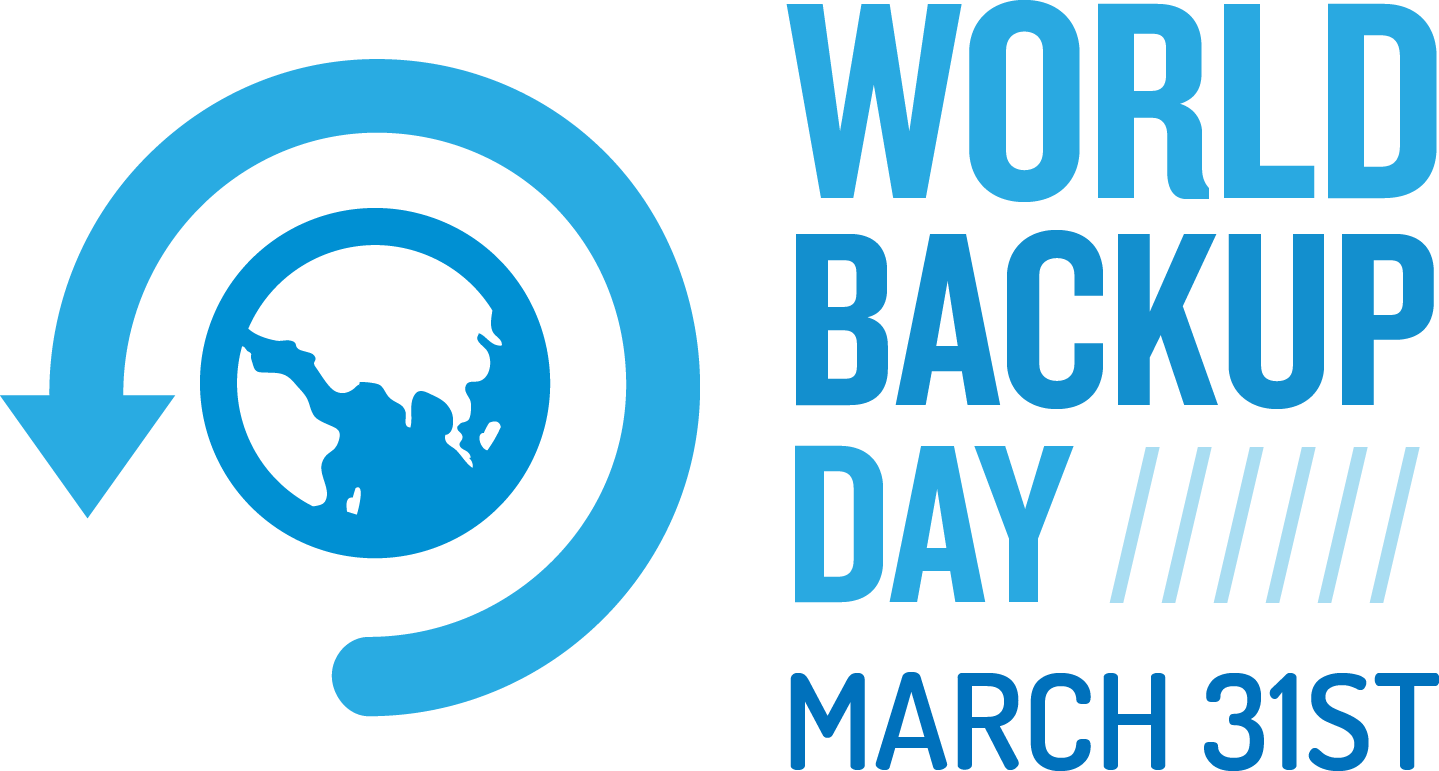World Backup Day 2018 is being held on the 31st of March and is designed to promote awareness around the importance of keeping backups of your business data in the event that something happens and you lose information. Business Backup is simple and affordable, yet so few businesses backup their data!
So we’re doing our bit to promote World Backup Day this year and encourage more businesses to backup!.
What is a backup?
A backup is simply a copy of your important files; backups are (usually) stored in a separate location to your computer (best practise!) so you have a copy in case something happens to your computer.
In short, to anyone who stores data, especially businesses, they ensure they’re backing up all their data.
What happens if we don’t backup?
A lot of people say why? We’ve never lost it before. Is it worth the risk? What’s the cost to your business? Financially? The heartache? How long has it taken you to build your business? How long would it take to rebuild your business if you lost EVERYTHING?!
Consider it like insurance…. Insurance with a car…. You don’t have an accident before taking insurance do you? It isn’t always our fault and we don’t intend on having an accident. We insure the car on the basis that we hope that we will never be in an accident, but should it happen, we are covered.
Think of business backup the same way. Back it up on the basis that you may never lose your data, but if you do, lose any data, if you are hacked, if your hardware fails or a fire destroys your business premise, be confident that you won’t lose your entire business – it is worth the peace of mind.
What do you stand to lose if you don’t backup your data?
Tax information, business documents, financial records, customer orders, spreadsheets, forms, customer information that you have spent years compiling and creating. What happens if you lost all of those in seconds?
It will never happen to me!
Losing all your data, therefore losing all of your business information and starting again happens more commonly than you think!
Source: worldbackupday.com
What’s the benefit of a backup?
If you have a backup, should the unfortunate happen and all your data is lost, you will be able to simply, quickly and easily restore all your data. Back to business as usual in very little time!
The benefits that data backup can have on your company!
Higher Reliability – One of the greatest benefits of regular remote data backup is the reliability it provides. Remote backup can be automated and updated daily basis, or you can set a time. Because the backup is done via the Internet, should you need to, you can recover files quickly.
Easy Set-Up – Set-up isn’t as difficult as you may think. You can set it up and automate it; while resting assured that all your data is protected, backed up and up-to-date.
Increased Security – Having a remote backup means your data is stored in a secure location. You can often encrypt your data so only the person with the ‘key’ can unencrypt your backups giving you confidence knowing that your data cannot be compromised.
Peace of mind – Leave the office at night knowing your data is backed up and in safe hands.
So you’re convinced?
So you’ve made the decision that Business Backups are a great idea. Great! Not only has World Backup Day done its job, but you’ve taken the first step to protecting your business.
So now you need to get started – that’s where innoTel can help.
Business backup is simple
innoTel offers an affordable online business backup service which allows you to store your backups offsite allowing for quick recovery of data for when you need it.
For as little as $7.95 per month, you can start backing up your important data.
It’s a small price to pay for peace of mind – cheaper than an insurance policy (that won’t recover the data you lost if you weren’t already backing up your business data!).
Backup any type of Windows, Mac, Linux computer, laptop and server or a Synology NAS quickly and easily. Set-up only takes a few minutes.
If you currently store your business data in Dropbox, OneDrive or Google Drive, you can also ensure you have a backup of those documents with the innoTel backup service.
Need to backup Office 365 Mailboxes, Exchange databases, SQL databases? We’ve got that covered too (additional fees apply).
innoTel Online Business Backup is your flexible backup solution for your critical data.

